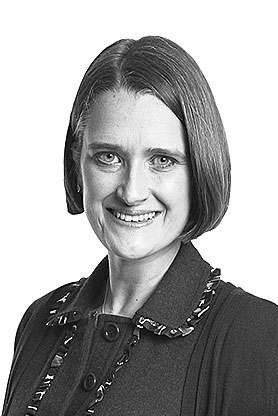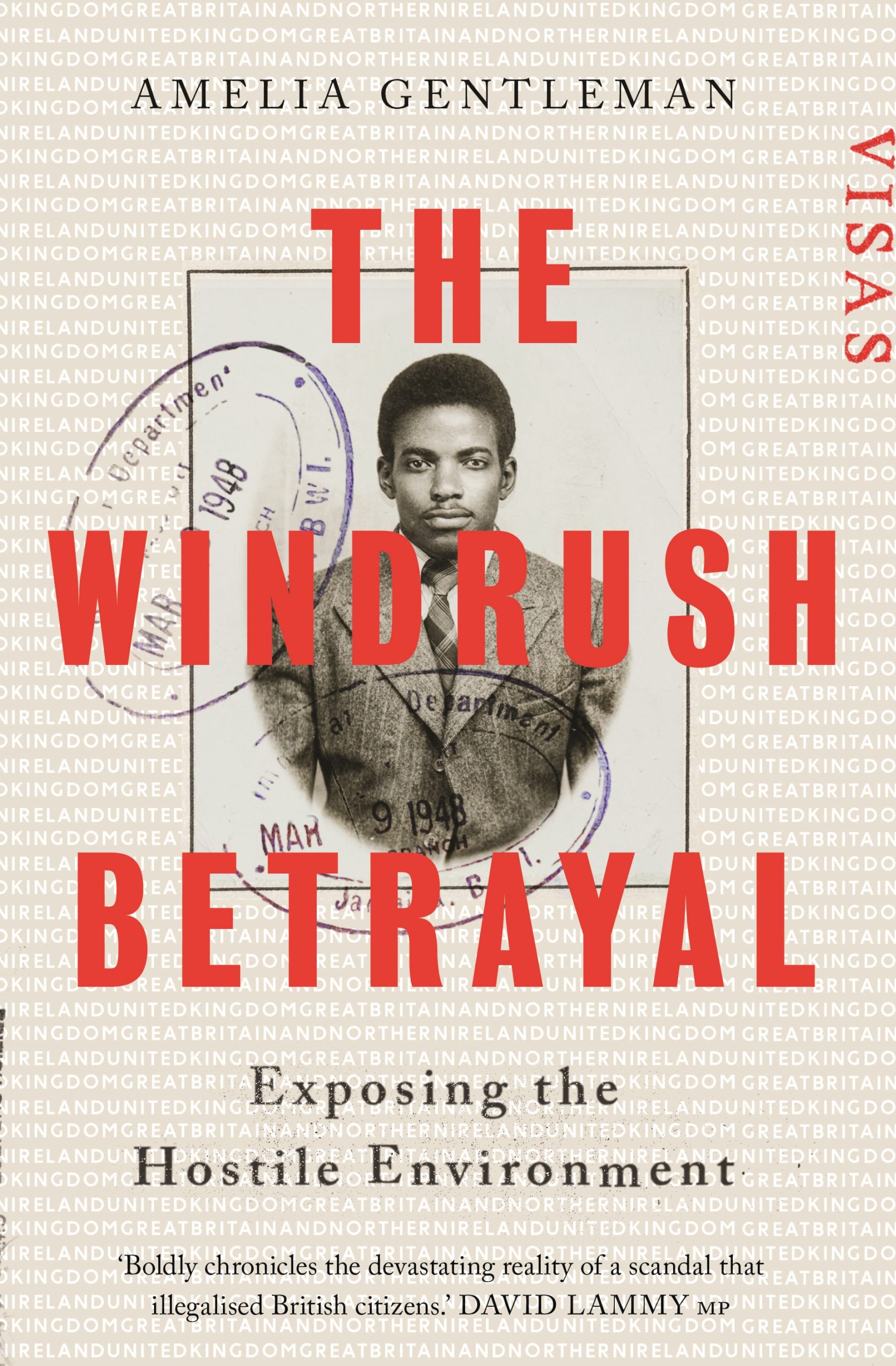Posted on April 9, 2020 by The Orwell Prize -

In Darren McGarvey’s Scotland, the activist confronts the rampant rise of poverty and inequality that now affects one in five of us in the UK. Far from ‘poverty porn’, Darren pushes his audience into a far deeper understanding of the true impact of poverty. From drug deaths to domestic abuse, aspiration to crime, poor mental health to life expectancy and far more, this six-part series meets those caught in the grip of poverty and those trying to inspire change. At the same time, Darren explores his own personal struggles, creating an authored series that was well-received by both audiences and critics alike.
“Forget any preconceptions you might have about gritty social documentaries that follow the same lazy (and often voyeuristic) format, Darren McGarvey’s Scotland takes a truly ground-breaking approach. Darren McGarvey’s journalism is brave, often informed by his own experiences, which not only makes for much richer content, but it also puts him on a level playing field with his interviewees. He has their trust, allowing people to be in control of their own storytelling. His poetic, eloquent and reflective broadcasting style arrests and engages the audience with its beauty and candour. Darren doesn’t shy away from the difficult questions, and often uses it as an opportunity to question his own assumptions and prejudices. Life is not black and white, and Darren McGarvey’s Scotland demonstrates the difference original and authentic tv storytelling can make to boosting public understanding of the causes of social harm in our society.” Abigail Scott Paul, Judge
Darren McGarvey’s Scotland (BBC Scotland Link)
Posted on April 9, 2020 by The Orwell Prize -

In a series of articles published over several months in the comment pages of The Times and the Times Magazine, Rachel investigated the link between the rise in school exclusions and knife crime. She joined Ofsted inspectors on an illegal unregistered alternative provision primary school and interviewed those working in pupil referral units to reveal the failings in that sector and how it could be improved. She also spoke to policymakers and politicians about the underlying causes of gang culture. The articles revealed how the education system is abandoning the most vulnerable children with appalling social consequences.
“Rachel Sylvester tackles the intersecting social evils of knife crime and school exclusions in a series of rigorously investigated and beautifully executed articles exposing the impact on the children themselves and society as a whole. Sylvester reveals the impact of inadequate regulation and investment and suggests a way forward by highlighting initiatives that have succeeded to bring about lasting change in the lives of some of our most vulnerable children.” Professor Rosie Campbell, Judge
Dithering ministers must tackle knife crime
Unruly children are simply being written off
Educating the excluded
Posted on April 9, 2020 by The Orwell Prize -

It started as a tip-off. It was said over the din of a busy kitchen to a co-founder of the Bristol Cable, working as a kitchen porter as the media co-operative got off the ground. Then, following an investigation spanning 5 years, one of Bristol’s most notorious bosses was facing accountability, and two men had been released from slave-like conditions.
Undercover reporting, a good amount of shoe leather, open-source intelligence, the cultivation of dozens of brave but apprehensive sources helped tell this story of modern Britain, putting a halt to decades of impunity. An engagement-led approach maximised official impact, including community events, a custom microsite and collaboration with the local BBC.
“The Bristol Cable’s brave and relentless investigation into horrific abuse of employees is an exemplar of how investigative journalism might thrive in the digital era. This collaborative crowd funded team have exposed local social evils with national implications. The mixed journalistic form lends itself to the extended investigation, following every twist and turn, learning about the hidden world around us on the way.” Professor Rosie Campbell, Judge
Finally exposed: How Lopresti ice cream boss kept men in slave-like conditions, tenants and families in squalor. But people spoke out.
The Ice Cream Slavery Case
Revealed: An anti-slavery court order was made against local boss Lopresti. Here’s evidence it may be being breached
Speaking out: A litany of allegations
Posted on April 9, 2020 by The Orwell Prize -

Children In The Dock is an investigation into the youth justice system in England and Wales which involved the Guardian’s Manchester team spending a month monitoring every case at Greater Manchester Youth Court. The series – which began with 18 articles and a podcast – exposed a chaotic, opaque system which fundamentally doesn’t work and fails to help some of society’s most vulnerable children. It revealed that youth cases now take 40% longer than in 2010, when the coalition government began closing half of all magistrates courts; that hundreds of children wait so long for justice that they have their 18th birthdays and end up in adult court; that care homes continue to criminalise children for petty crimes; that the proportion of BAME children in court has doubled in eight years.
“The Guardian’s investigation into youth justice in Britain was a thorough exposé of a creaking system that fails our most vulnerable children. The judges were impressed by how reporters used a variety of methods, including covering every case in one youth court for a month, to detail these failings and spark calls for a systemic review” Max Daly, Judge
Youth court system in ‘chaos’, says children’s commissioner
Children in handcuffs: a month reporting from youth in court
Revealed: hundreds of children pushed into adult courts by delays
A day inside the hidden world of youth courts
Posted on April 9, 2020 by The Orwell Prize -

Submitted material
- ‘Clearing out my family home‘
- ‘Modern day serfs are invisible to us’
- ‘Corbyn is clueless about the working class’
Ben Fenton, Chair of Judges for The Orwell Prize for Journalism 2020, said:
To Orwell, as it says on the homepage of the Prize, the key was to make political writing into an art. If there was one piece out of the more than four hundred that we read which was art and politics weaved together in a journalistic tapestry, it was Janice Turner’s account of clearing her parents’ home after her mother went into care… The word Brexit does not appear in this piece, but the judges all agreed that the essence… oozed from every sentence.
Posted on April 9, 2020 by The Orwell Prize -

Aditya Chakrabortty is senior economics commentator for the Guardian, where he writes a regular column and reports from around Britain and the world. In December 2017, he won the British Journalism Award for Comment Journalist of the year. His work has also won a Social Policy Association award, a Harold Wincott prize for Business Journalism and has been a finalist for an Orwell Prize on several occasions. He is a regular broadcaster on radio and television and tweets @chakrabortty.
A children’s book about food banks is a grim sign of our failure as a society
On the doorstep, Labour faces the question: who do you speak for?
Integrate, migrants are told. But can they ever be good enough for the likes of Blair?
Orwell would have recognised and appreciated the way Aditya Chakrabortty brings together the personal and political, from an anguished article criticising a society in which children’s books must explain poverty, to an insightful article looking at racism in Britain through the story of his own mother, who arrived from India as a bright young woman with an inquiring mind, wearing a sari.”
Posted on April 9, 2020 by The Orwell Prize -

John Harris and John Domokos are the co-creators of The Guardian video series Anywhere But Westminster, which has been running for ten years, chronicling and foreshadowing many of the tumultuous political events of the decade. Their aim has always been to turn political coverage on its head, and root their journalism far beyond centres of power, in the experiences of people and places too often ignored.
We spent ten years talking to people – here’s what it taught us about Britain
Anywhere But Westminster: ‘A big day in the North’
Anywhere But Westminster: ‘How Labour lost, and the hope that endures’
John Harris and John Domokos’ reporting told the story of Britain as it is, not as some imagine it to be. In their own words, they successfully refute ‘the snobbish idea that some people are beyond the pale, and things would be a lot better if they were returned to a state of voicelessness‘.”
Posted on April 9, 2020 by The Orwell Prize -

Peter Foster is currently the Public Policy Editor at the Financial Times. Previously he was Europe Editor at The Daily Telegraph where he covered the Brexit negotiations from both sides of The Channel. He returned to London in 2015 after more than a decade spent as a foreign correspondent covering South Asia, China and the United States.
No-deal Brexit looms as leak reveals Dominic Cummings considers EU negotiations a ‘sham’
The fevered weeks which sealed an ‘impossible’ deal
‘Stunned off my sun lounger’
Peter Foster’s writings on Brexit, the great issue of our day, were insightful. We were struck most by the way they were written against the grain, avoiding the ideologically driven, hackneyed reporting the issue generated in so much of the media. His threads on Twitter were among the most insightful use of journalism’s newest tool.”
Posted on April 9, 2020 by The Orwell Prize -

Peter Oborne is a former political commentator of the Spectator, the Daily Telegraph and Daily Mail. He now writes about politics for Open Democracy and Middle East Eye. He is the author of The Triumph of the Political Class, and The Rise of Political Lying as well as a biography of the cricket Basil D’Oliveira.
I was a strong Brexiteer: Now we must swallow our pride and think again
British Journalists have become part of Johnson’s fake news
As a lifelong Conservative, here’s why I can’t vote for Boris Johnson
Peter Oborne clearly and honestly articulated his own rethink on Brexit. Elegantly, yet with strong feeling, he set out the painful reasoning process that led him to shift from support to opposition and what he saw as the failures of integrity and leadership behind his change of heart.”
Posted on April 9, 2020 by The Orwell Prize -

David Smith has been Economics Editor of The Sunday Times since 1989, where he writes a weekly column. He is also chief leader-writer, an assistant editor and policy adviser. He also writes columns for The Times and other publications.
Scottish Independence? Just do the sums – it’s 40 years too late for that
More Stoke on Trent than Singapore on Thames
Public support for nationalisation is part of the backlash against greed
David Smith’s writings were sharp and incisive: we were most impressed by how he managed the difficult feat of presenting complex economic issues in a style the layperson could understand.”
Posted on April 7, 2020 by The Orwell Prize -

Caroline Criado Perez is a writer, broadcaster and award-winning feminist campaigner. Her most notable campaigns have included co-founding The Women’s Room, getting a woman on Bank of England banknotes, forcing Twitter to revise its procedures for dealing with abuse and successfully campaigning for a statue of suffragist Millicent Fawcett to be erected in Parliament Square. She was the 2013 recipient of the Liberty Human Rights Campaigner of the Year Award, and was awarded an OBE in the Queen’s Birthday Honours 2015. Her first book, Do it Like a Woman, was published in 2015. She lives in London.
The judges say:
Posted on April 7, 2020 by The Orwell Prize -

Tim Bouverie read history at Christ Church, Oxford. From 2013-2017 he was a political journalist at Channel 4 News, where he worked alongside Michael Crick, as his producer, and covered all major political events, including both the 2015 and 2017 General Elections and the EU Referendum. He regularly reviews history and politics books, and has written for the Spectator, Observer and Daily Telegraph. He has also for the last five years worked at the Chalke Valley History Festival as an interviewer.
The judges say:
Posted on April 7, 2020 by The Orwell Prize -

Charles Moore joined the staff of the Daily Telegraph in 1979, and as a political columnist in the 1980s covered several years of Mrs Thatcher’s first and second governments. He was Editor of the Spectator 1984-1990; Editor of the Sunday Telegraph 1992-1995; and Editor of the Daily Telegraph 1995-2003, for which he is still a regular columnist. The first volume of his biography of Margaret Thatcher, published in 2013, won the Elizabeth Longford Prize for Historical Biography, the H.W. Fisher Best First Biography Prize and Political Book of the Year at the Paddy Power Political Book Awards.
The judges say:
Posted on April 7, 2020 by The Orwell Prize -

Kate Clanchy is a writer, teacher and journalist. Her poetry collection Slattern won a Forward Prize. Her short story ‘The Not-Dead and the Saved’ won both the 2009 BBC National Short Story Award and the VS Pritchett Memorial Prize. Her novel Meeting the English was shortlisted for the Costa Prize. Her BBC 3 radio programme about her work with students was shortlisted for the Ted Hughes prize. In 2018 she was awarded an MBE for services to literature, and an anthology of her students’ work, England: Poems from a School, was published to great acclaim. In 2019 she published Some Kids I Taught and What They Taught Me, a book about her experience of teaching in state schools for several decades.
The judges said:
In this book, a brilliantly honest writer tackles a subject that ties so many people up in knots – education and how it is inexorably dominated by class. Yet this is the very opposite of a worthy lecture: Clanchy’s reflections on teaching and the stories of her students are moving, funny, full of love and offer sparkling insights into modern British society.”
Posted on April 7, 2020 by The Orwell Prize -

Shoshana Zuboff has been called ‘the true prophet of the information age’ by the Financial Times for her ground-breaking book, In the Age of the Smart Machine. She is now the Charles Edward Wilson Professor Emerita at Harvard Business School as well as Faculty Associate at the Berkman Center for Internet and Society at Harvard Law School. In 2006, strategy+business magazine named her one of the eleven most original business thinkers in the world.
The judges say:
Posted on April 7, 2020 by The Orwell Prize -

Amelia Gentleman is a reporter and author of The Windrush Betrayal, Exposing the Hostile Environment. She won the Paul Foot award, Cudlipp award, an Amnesty award, journalist of the year British journalism awards and London press club print journalist of the year for Windrush investigations. She has also won the Orwell prize, feature and specialist writer of the year.
The judges say:
Posted on April 7, 2020 by The Orwell Prize -

Robert Macfarlane is the author of Mountains of the Mind, The Wild Places, The Old Ways, Landmarks, and The Lost Words, co-created with Jackie Morris. Mountains of the Mind won the Guardian First Book Award and the Somerset Maugham Award and The Wild Places won the Boardman-Tasker Award. Both books have been adapted for television by the BBC. The Lost Words won the Books Are My Bag Beautiful Book Award and the Hay Festival Book of the Year. He is a Fellow of Emmanuel College, Cambridge, and writes on environmentalism, literature and travel for publications including the Guardian, the Sunday Times and The New York Times.
Posted on April 7, 2020 by The Orwell Prize -

Colson Whitehead was born in 1969, and was raised in Manhattan. After graduating from Harvard College, he started working at the Village Voice, where he wrote reviews of television, books, and music. He is the author of The Nickel Boys, The Underground Railroad, The Noble Hustle, Zone One, Sag Harbor, The Intuitionist, John Henry Days, Apex Hides the Hurt, and one collection of essays, The Colossus of New York. He has received a MacArthur Fellowship, A Guggenheim Fellowship, a Whiting Writers Award, the Dos Passos Prize, and a fellowship at the Cullman Center for Scholars and Writers. He lives in New York City. Before winning this year’s Orwell Prize for Political Fiction, The Nickel Boys also won the Pulitzer Prize, making Whitehead only the fourth writer ever to win the Pulitzer Prize for fiction twice.

















